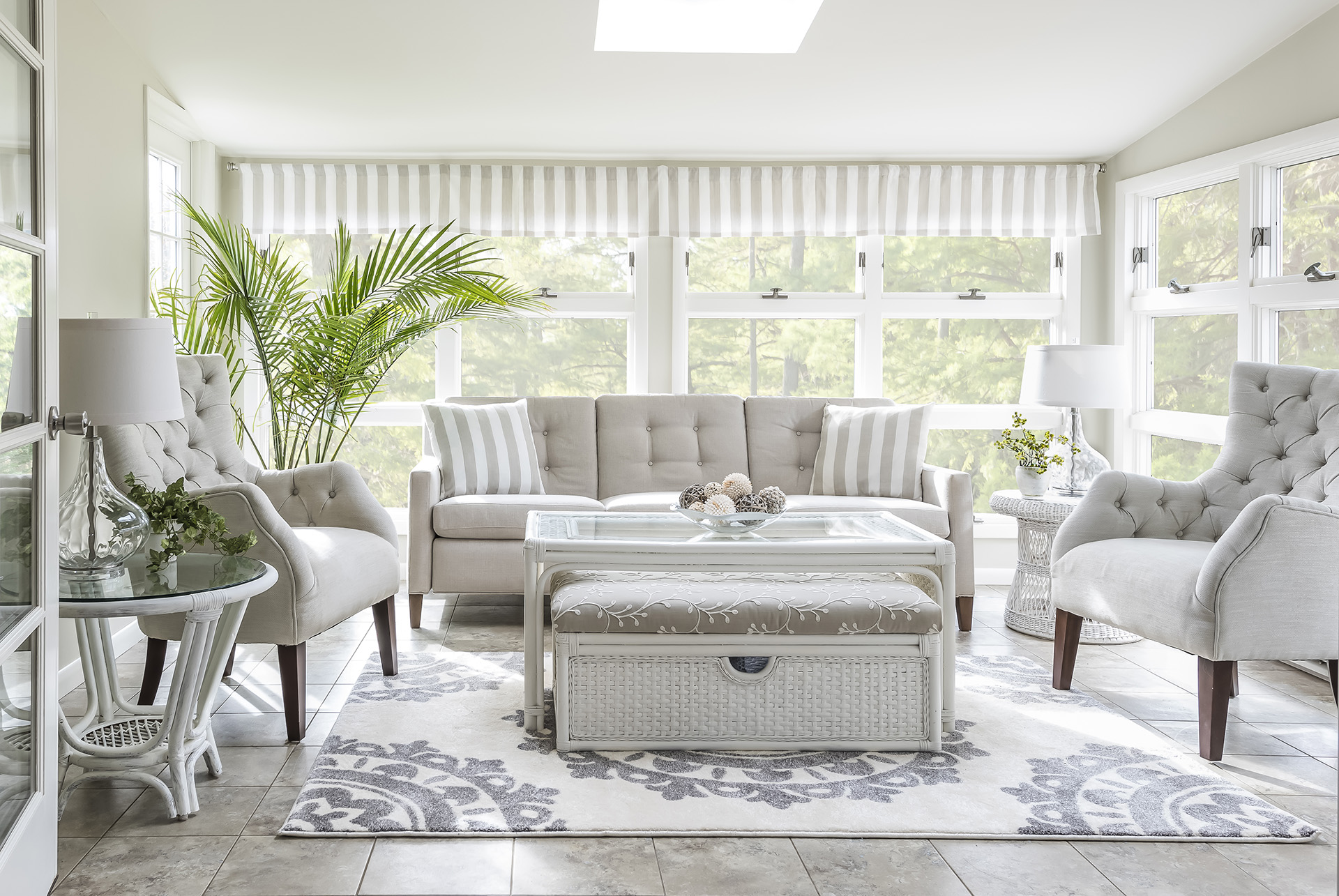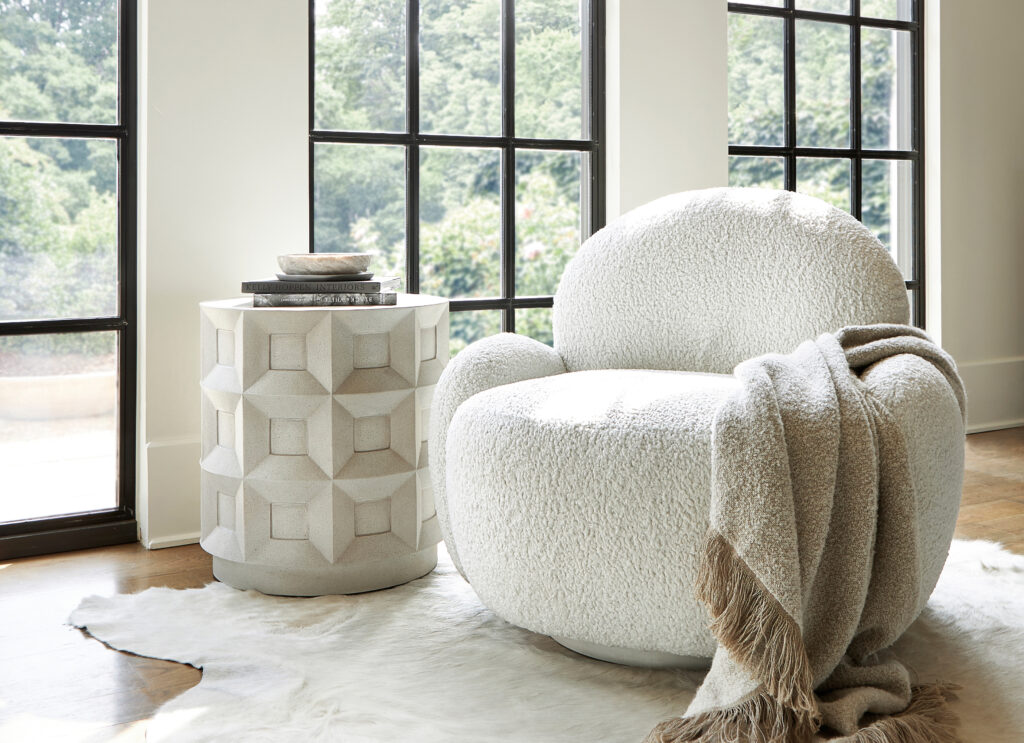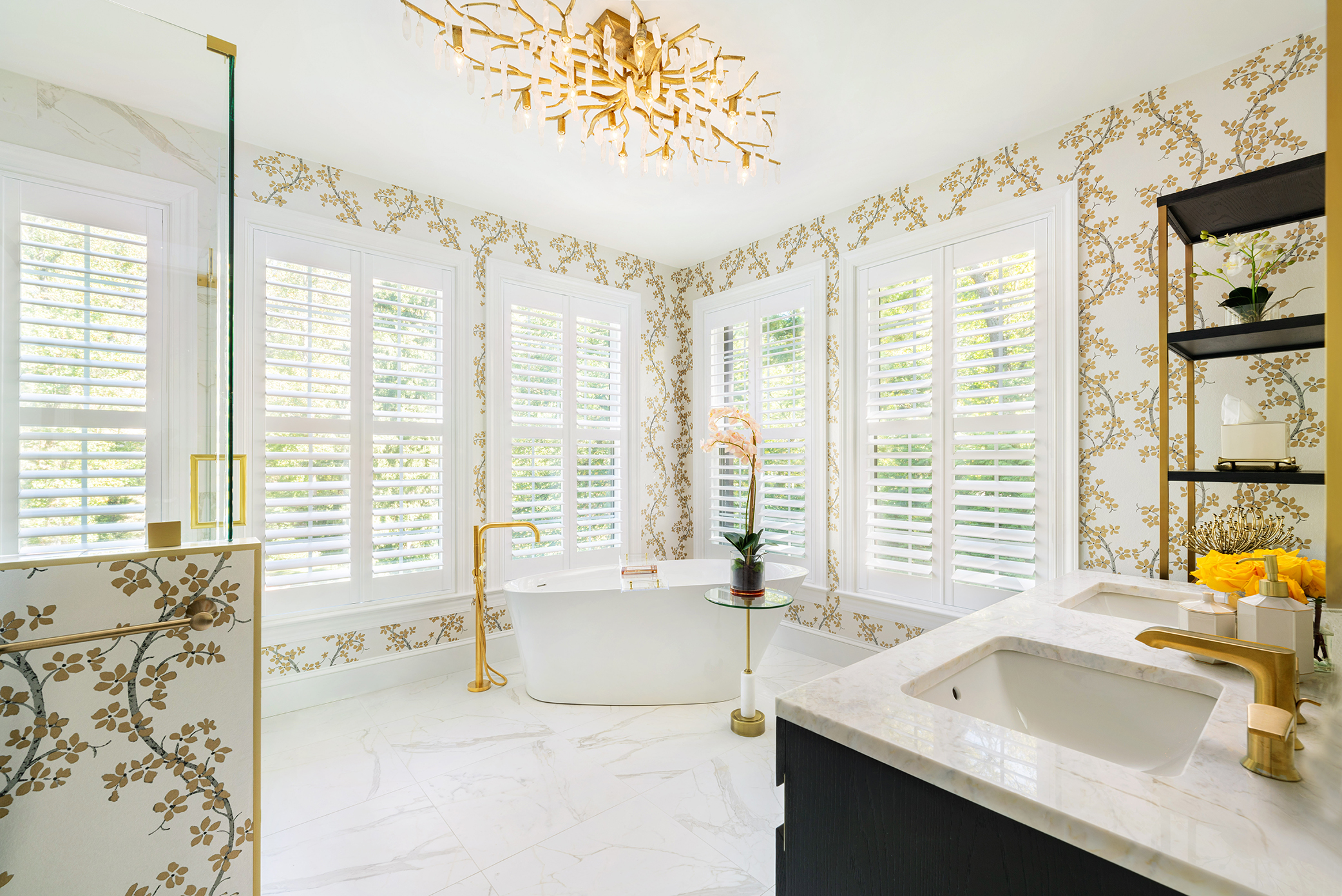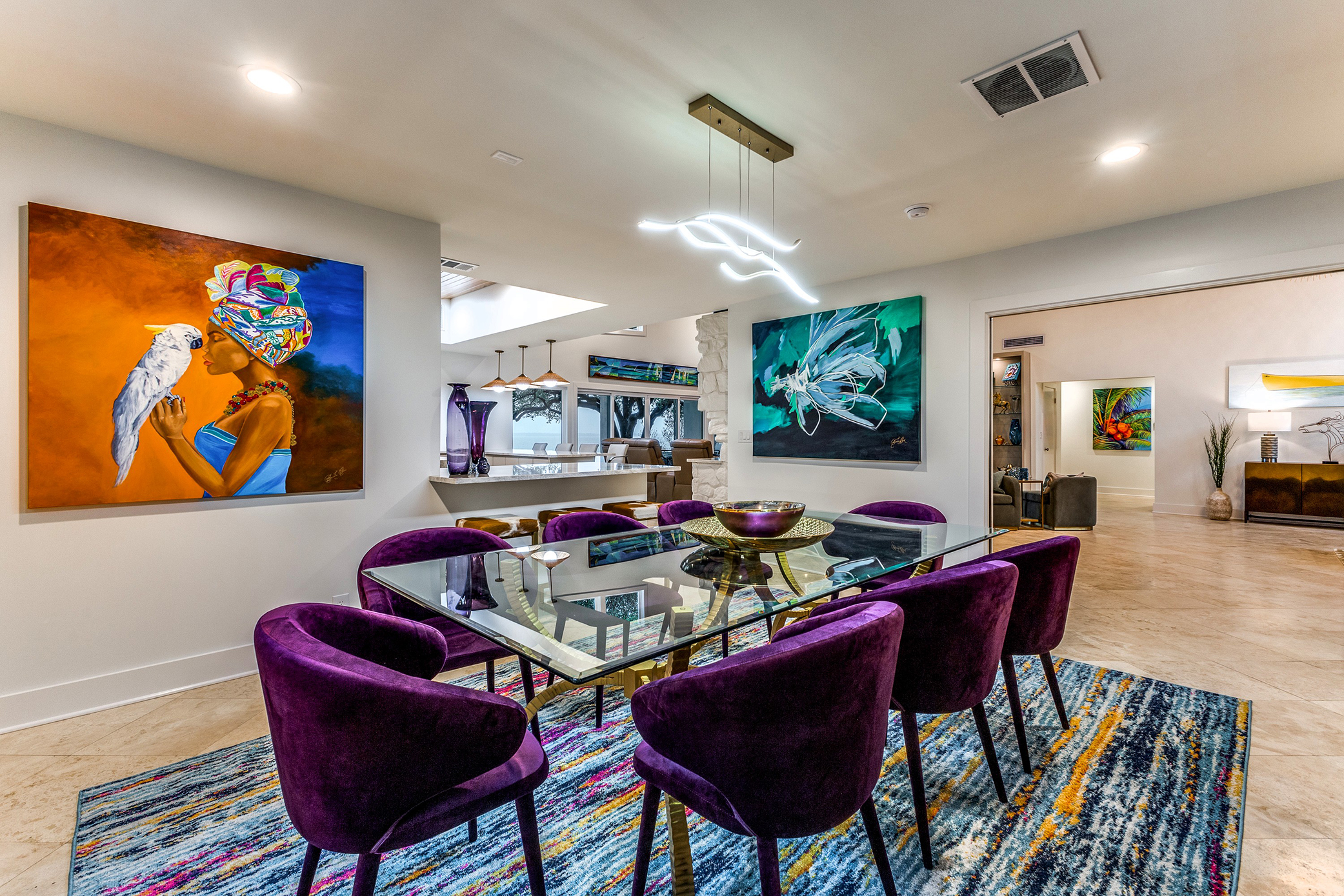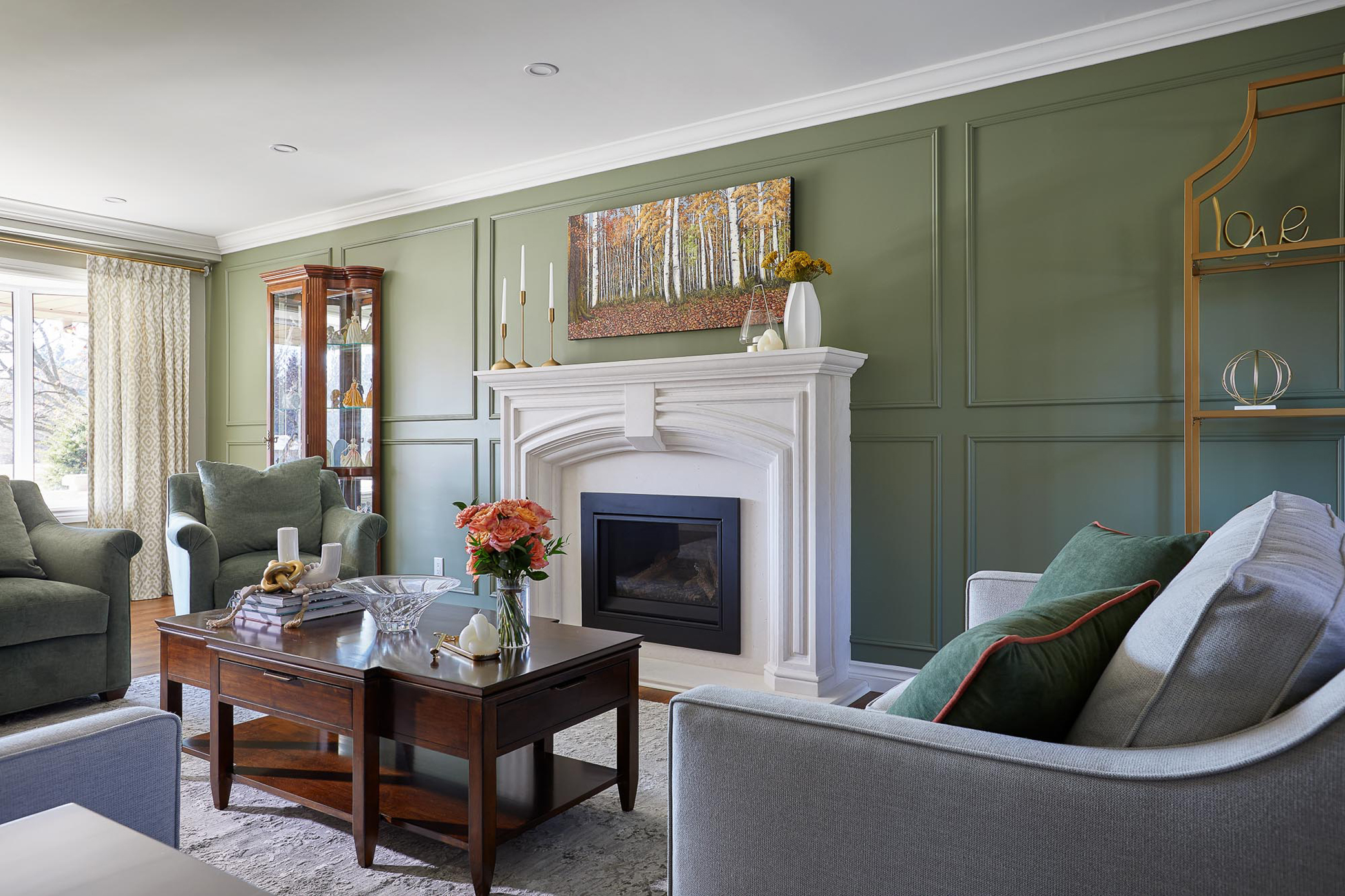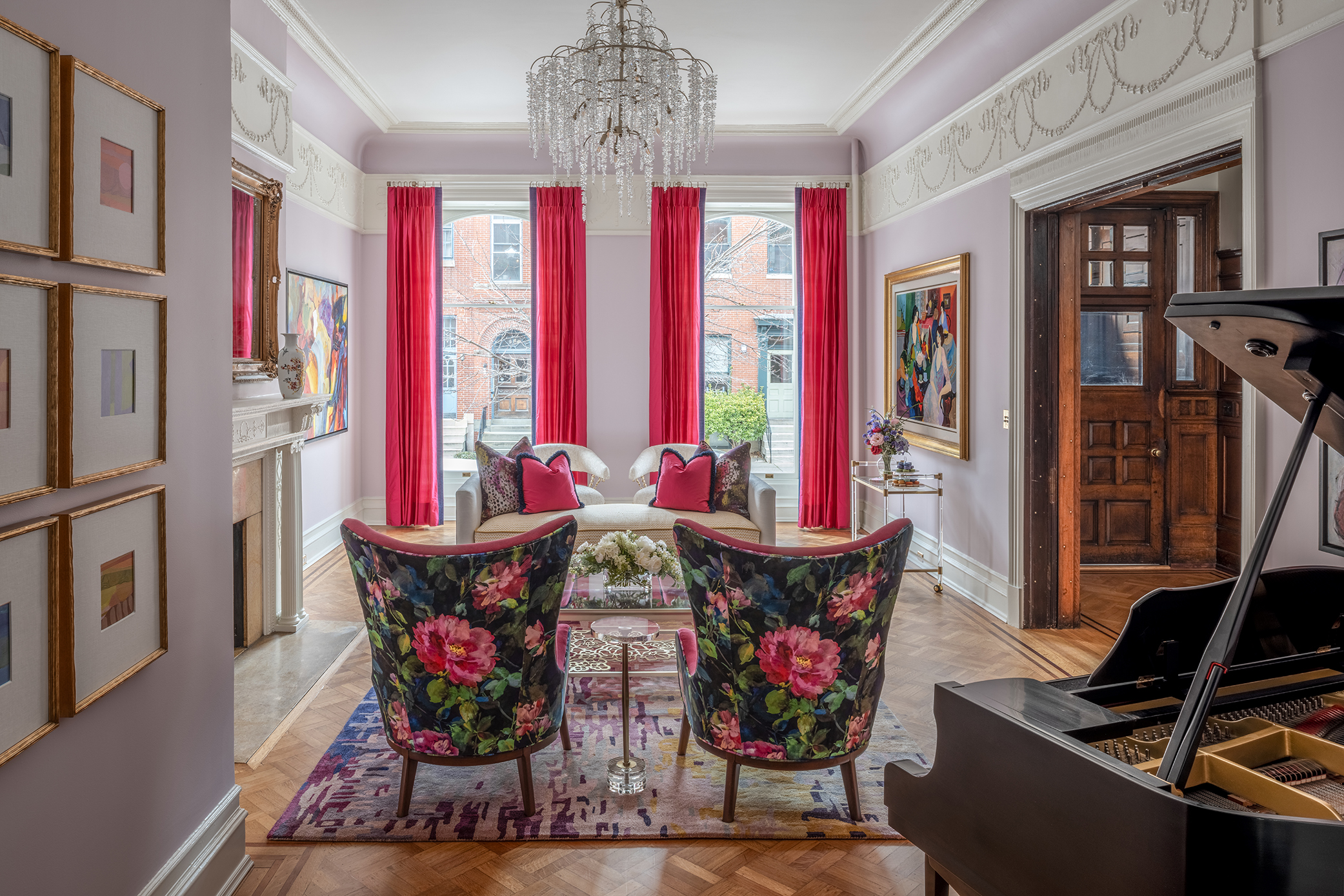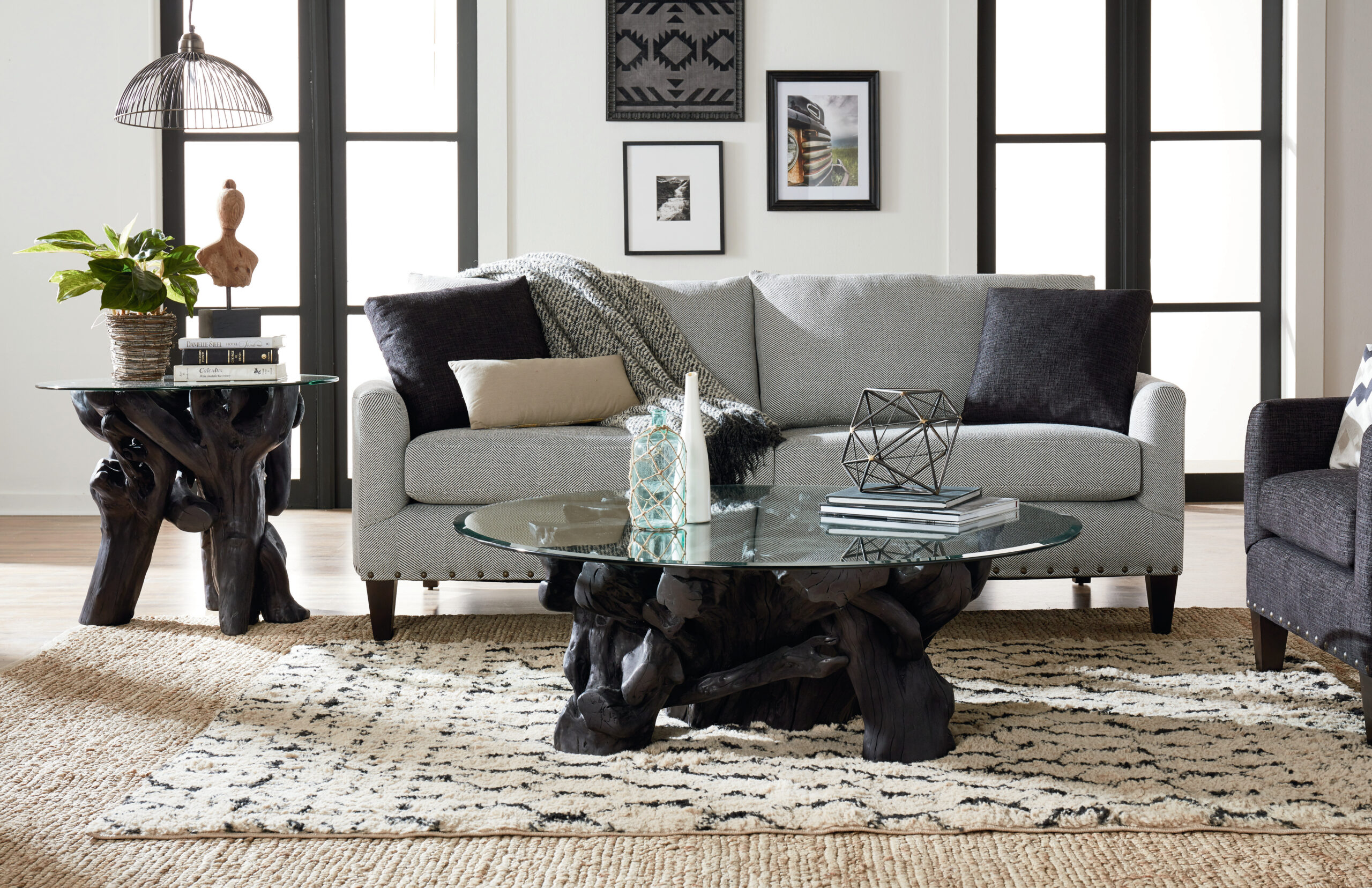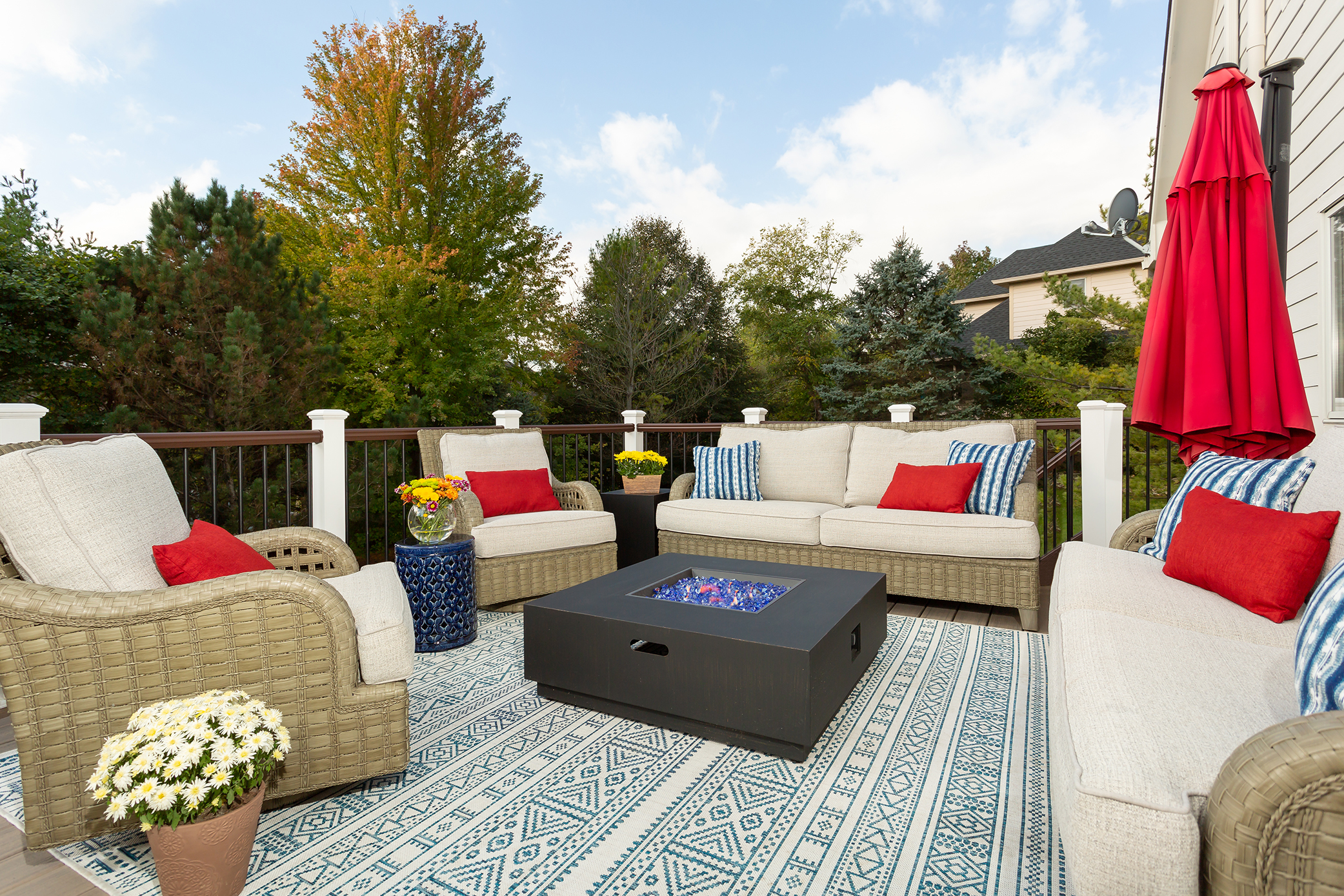Biophilic Design, where nature and natural elements take center stage in our homes and workplaces, is the leading trend we’ve seen at the recent High Point N.C. Home Furnishings Markets. It’s about connecting people and nature within the home environment. Biophilic design elements play a therapeutic role as they are thought of as calming, uplifting, and anxiety-reducing. Designs should include hues that mimic natural occurrences by bringing nature into the home. This can be in the form of rounded walls, curved furniture, skylights, natural elements, and colors.
Biophilic uses outdoor inspirations as gigantic mood boards that allow you to select from a multitude of colors, materials, shapes, and patterns. Think lush plants, warm wood, cool stone, and water and light features. Not only does it look beautiful, but it also has been proven to boost our moods, increase productivity, and reduce stress levels.
Nature’s calming influence
The emphasis on Biophilic is based on the growing appreciation for nature and its calming influence on our lives. People are seeking more comfort and coziness at home in the form of painted nooks, moody wallpaper, warm wood tones, and rich, colorful upholstery. There is a rise of soft, warm nuances that are spirit-lifting and dopamine-enhancing. We want spaces that bring nostalgic moments to mind, fond recollections from our past that elicit a sense of warmth, comfort, and longing.

Biophilic Design is when nature and natural elements take center stage in our home.
We are seeing a cheerful bouquet of colors which will continue. Blues and greens, of course, are obvious colors for connecting with nature. Adding to those two popular colors are pink and yellow undertones. For a calming, relaxed, and welcoming interior, earthy or nature-inspired tones are taking over. Hues such as ochre, tan, taupe, light pinks, and light greys are taking over bedroom and dining room schemes.
Classic floral and lattice patterns are mingled with textural solids and delicate small-scale patterns for ease of layering. The color palettes explore a variety of inviting tones including buttercup yellows, corals, sage greens, clean blues, and earthy neutrals.
More emphasis on details
Intricate details enhance a room and make it utterly unique and interesting. They are indicators of quality, identity, functionality, and care. They tell stories and create memories. Like jewelry for your wardrobe, intricate details are the final piece of a room’s design. There is a definite trend to focus more on detail in selecting furnishings.
Texture also adds detail to a room’s design. In fabrics we see mohair, dimensional and mixed yarn boucle to add a softer personality to the design. There is also continued interest in Chenille, and shearling. In metals, we see burnished bronze and brown-based metals versus yellow or silver -based metals. In ironworks, there is a more hand-forged look. In stone, a more honed feeling, with softer raw edges. In wood, there continues to be raised grains and wire-bushed looks which creates a feeling of being close to the material. In natural materials, there is a move from split rattan to rush weaving and rush seating. In glass, we are seeing more ombre’, some opalescence, and more color. Tinted, milked frosted, and ombre’ are the story whether through urns and vases or tabletop.
Soft lines and more farmhouse
This year, designers and homeowners alike are leaning toward furniture and home elements that embrace soft lines. Spaces continue to have curvilinear shapes and a cocooning environment. In a turbulent world, we look for our homes to be our safe-haven or refuge. Cozy, comfortable living rooms or family rooms are on trend. Curved lines represent the fluid movement of water. Furniture designers have spotted the opportunity to bring people back together; a curved sofa, for example, can do that.
Yes, Farmhouse Design is still popular.
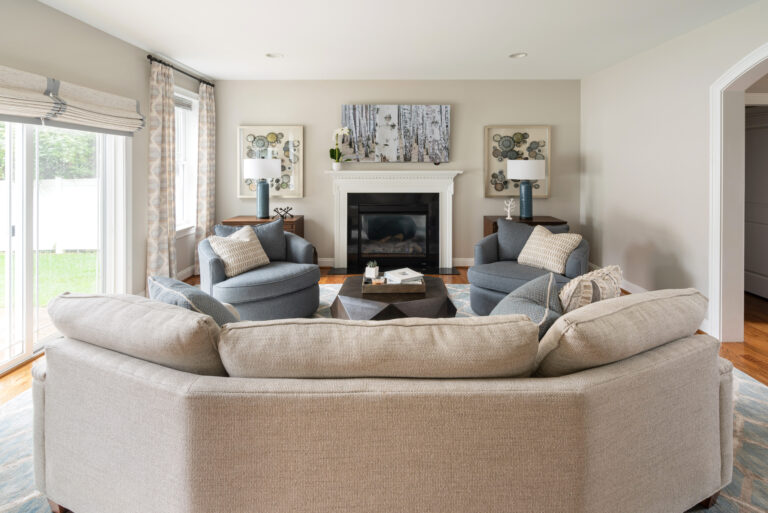
Curved furniture and curved use of space foster conversation and calming connections.
Today’s farmhouse design takes the comfortable, relaxed farmhouse style and adds modern touches such as smooth lines, glossy accents, and neutral color schemes. It’s less rustic, more sophisticated and uses contemporary design elements like stainless steel appliances, granite countertops and sleek lighting. It is often characterized by using natural materials, such as wood, stone, and metal, as well as vintage and distressed furniture.
The key to these trends is the focus on calm, comfort, and connection.
If you’re interested in incorporating Biophilic design into your home, Waters Edge Design is here to help! Contact us today to schedule your complimentary in-home design consultation!

